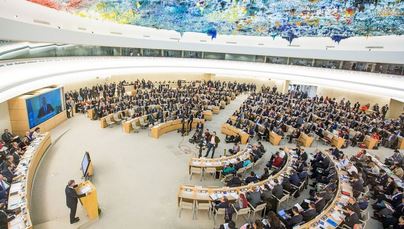Migrant Rights and Europe’s Responsibility

Written statement presented by the ADH at the 49th session of the Human Rights Council
As various reports and data show, immigrants, especially African immigrants, are deprived of their most basic rights, which are inalienable and necessary for everyone.
Since the end of the 20th century, around 60,000 migrants have lost their lives across the world on the migration routes. For example, in 2017, nearly 6,280 migrants were reported missing or dead, the majority of whom were from sub-Saharan Africa. Unfortunately, European countries fail to protect refugees and migrants trying to reach Europe via the Mediterranean. As the Council of Europe Commissioner for Human Rights (2021) has stated, their failure results in thousands of preventable deaths every year.
Apart from the dangerous road and the suffering of the journey to the destination, refugees face different living conditions from country to country. For example, in some places such as countries in the South, refugees are accommodated in camps until their application is examined. Some EU countries to house migrants use places such as detention centers or community centers, which limit migrants’ chances of finding a job. Some of these houses have very dangerous conditions and show political indifference towards this population and the process of their admission. In some cases, the conditions are very similar to those of detention and make no difference to those experienced when these people were in their country of origin.
The European Network Against Racism (ENAR) had already carried out an in-depth survey in 2017 and published several key findings on the conditions of migrants, in particular Africans, in Europe. Migrants, including black Africans, who had very low life satisfaction and did not feel close to the people in the area where they lived. Accommodation was another issue, with a total of 77% of migrants having problems finding accommodation. Today migrants still have the same conditions, further aggravated by new crises such as coide19.
Another important problem is related to the vulnerability of migrants to crimes, including serious cases of assault. As is the case with black Africans who sometimes suffer verbal abuse. According to reports, almost 36% of the migrants surveyed believed that the crime committed against them was related to their ethnicity and 53%, overall, to their migration status. However, it should be noted that many cases of crime may go unreported, especially by undocumented migrants who fear deportation.
It is urgent that, alongside the efforts of the United Nations, which continues to support migrants, European countries take the necessary measures to put an end to these tragic conditions, by adopting migration policies in accordance with the principles of human rights.

